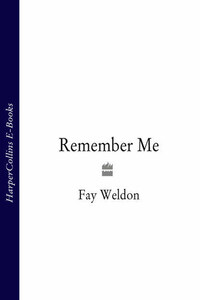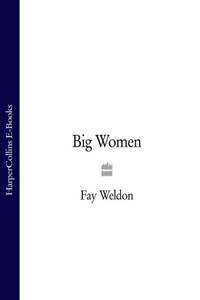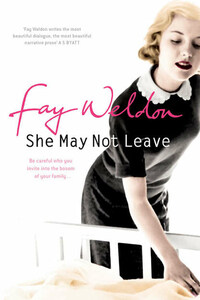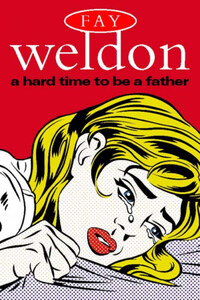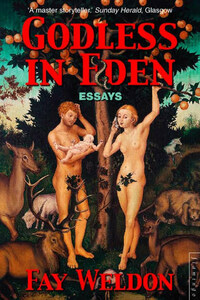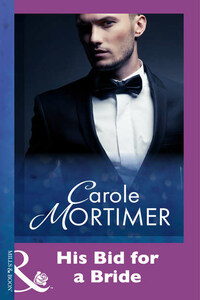Many people dream of country cottages. Liffey dreamed for many years, and saw the dream come true one hot Sunday afternoon, in Somerset, in September. Bees droned, sky glazed, flowers glowed, and the name carved above the lintel, half-hidden by rich red roses, was Honeycomb Cottage and Liffey knew that she must have it. A trap closed round her.
The getting of the country cottage, not the wanting—that was the trap. It was a snare baited by Liffey’s submerged desires and unrealised passions, triggered by nostalgia for lost happiness, and set off by fear of a changing future. But how was Liffey, who believed that she was perfectly happy and perfectly ordinary, to know a thing like that? Liffey saw smooth green lawns where others saw long tangled grass, and was not looking out for snares.
Besides, as Liffey’s mother Madge once observed, ‘Liffey wants what she wants and gets cross with those who stand in her way.’
Richard stood in Liffey’s way that hot September afternoon, and Liffey was cross with him. Richard had been married to Liffey for seven years, and responded, as spouses will, to the message behind the words, and not the words themselves.
‘I want to live in the country,’ said Liffey, remarkably enough, for she did not often put her wants and wishes so straightforwardly into words.
‘We can’t,’ said Richard, ‘because I have to earn a living,’ and it was unlike him to disappoint her so directly, and so brutally.
Liffey and Richard seldom had rows, and were nearly always polite to each other, which made them believe they were ideally suited and happily married. She was small and bright and pretty; and he was large, handsome and responsible. She was twenty-eight, and he thirty-two. Madge was relieved that Liffey was, so far, childless; but Richard’s mother, although an Anglican, had already lit a candle to the Virgin Mary and prayed for the grandchild she could reasonably have expected five years ago. They had been married for seven years, after all.
‘But we could be so happy here,’ said Liffey. The cottage stood on rising ground, at a point where smooth fields met wooded hillside. It looked across the plains to Glastonbury Tor, that hummocky hill which rises out of the flat Somerset levels, and is a nexus of spiritual power, attracting UFOs, and tourists, and pop festivals, and hippies, and the drug squad. The cottage was empty. Spiderwebs clouded the latticed windows.
‘We are happy where we are,’ said Richard. Adding, ‘Aren’t we?’ in a half threatening, half pleading tone of voice, so she was obliged to forget his crossness and kiss him, and say yes. And indeed, their city apartment was small, but convenient and comfortable, and Liffey had never before complained about it, nor had any real reason to. If she gave voice to worries they were not so much personal as ecological, and were about the way the earth’s natural resources were being eaten up, and what was happening to the blue whale, and baby seals, and butterflies, and what deforestation did to the ozone layer above Brazil. Richard, who knew that new developments in nuclear, chemical and silicon chip technology would soon solve all such problems, laughed gently and comfortingly at her worries and loved her for worrying. He liked to look after her, or thought he did.
After they kissed, he took Liffey round to the back of the cottage, through hollyhocks and wallflowers, and there, in the long grasses down by the stream, made love to her. It was a decorous event, characteristic of their particular mating behaviour. Liffey lay still and quiet, and Richard was quick and dutiful.
‘Isn’t she skinny,’ said Mabs, watching through field glasses from the bedroom of Cadbury Farm. Her husband Tucker took the glasses.
‘They grow them like that in the city,’ he said. They both spoke in the gentle, caressing drawl of the West Country, mocking the universe, defying its harshness. ‘You don’t know they’re from the city,’ Mabs objected. ‘They’re not from round here,’ said Tucker. ‘No one round here does it in public.’
Cadbury Farm was made of stone, and so long and low and old it all but vanished into the fold of the hill above the cottage. Liffey and Richard, certainly, had not noticed it was there. Tucker’s family had lived at Cadbury Farm, or on its site, for a thousand years or so. When Tucker moved about his fields, he seemed so much part of them he could hardly be seen. Mabs was more noticeable. She was reckoned a foreigner: she came from Crossley, five miles away. She was a large, slow, powerful woman and Tucker was a small, lithe man. So had her Norman ancestors been, ousting the small dark Celts, from which Tucker took his colouring and nature.


